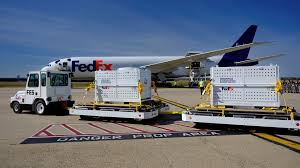The U.S. Department of Defense (DoD) transportation command and Sierra Space, the firm creating the shuttle-like Dream Chaser spacecraft for cargo transport and potential human flights, have pledged to complete point-to-point space shipments within three hours. Sierra Space officials said in a statement that the early-stage cooperative research and development agreement (CRADA) “provides unique capabilities for precise, cost-effective, and timely global delivery of [DOD] logistics and personnel.”
In addition, the statement stated that “both sides would collaboratively study space transportation as a new means of point-to-point global terrestrial delivery of materiel and personnel, as an alternative and complement to traditional air, land, and surface modes for… global supply chains.” A CRADA with Rocket Lab to use its Electron booster and a $102 million contract with SpaceX (through the U.S. Air Force) for rocket deliveries of military cargo and humanitarian supplies are just a few of the recent agreements the U.S. military has signed for its upcoming point-to-point transportation requirements.
Federal agencies can offer non-funded agreements to private organisations through CRADAs while continuing to support them with their facilities, tools, knowledge, and other services. According to Sierra Space, the arrangement would enable the company to develop logistical solutions for dealing with fast-emerging dangers in “contested and changing situations” or for supplying disaster-affected areas.
As Sierra Space seeks cargo deliveries for NASA (with whom it has an arrangement for International Space Station resupply missions), as well as other organisations, the Dream Chaser spacecraft has completed a number of test flights.
According to a U.S. Air Force (USAF) release from October 2020, the U.S. military has been discussing high-speed space deliveries for at least three years, including overcoming important limitations like weight, volume, and restrictions in launch operations and recovery.
According to USAF officials at the time, space transportation’s capacity to quickly deliver critical cargo on target at great distances makes it an appealing alternative. “As the industry progresses to address these problems as well as improve its pace of launches to cut costs,” they said.











